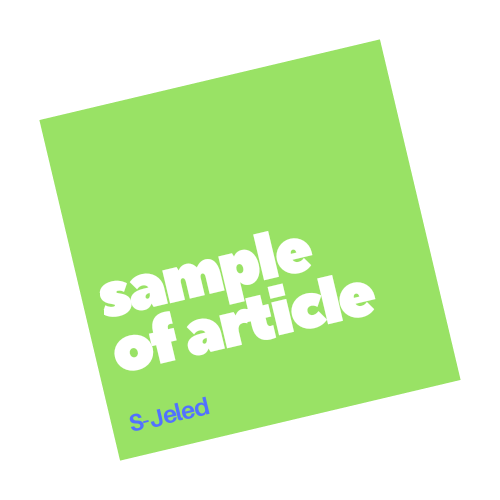THE FLOUTING MAXIM ANALYSIS IN THE MOVIE “MONA LISA SMILE” BASED ON GRICE’S COOPERATIVE PRINCIPLE
Abstract
This research analyzed the kind of flouting maxim in the movie “Mona Lisa Smile” based on Grice’s cooperative principle. When utterances flouted maxim, it generates an implicature. In conducting the research, the researcher uses a descriptive qualitative method. The data are taken from dialogues in the movie. The researcher explained them descriptively. There are some steps in the way of collecting data. They are watching the movie entitled “Mona Lisa Smile” for several times to understand the whole story, downloading the script from internet and copying it to the movie, taking all utterances which contains flouting maxims as the data, and giving a code for each datum. The steps of analyzing data are describing the data form of, describing the context, analyzing the data based on Grice’s cooperative principle, and analyzing the implicatures. The results show that in this research, the maxim flouted 25 times of whole dialogues in the movie. The maxim of quantity flouted 15 times or 60%, the maxim of quality flouted 1 time or 4%, the maxim of relation flouted 5 times or 20%, and the maxim of manner flouted 4 times or 16%. The result shows that all flouting maxims were found in this movie. All maxims which are flouted by the speaker generate the implicature. It depends on the context and situation where the dialogues occur.
Keywords – Analysis, Grice’s Maxim, Cooperative Principle, Mona Lisa.
Full Text:
XMLReferences
Ariel, Mira. 2008. Pragmatics and Grammar. New York: Cambridge University Press.
Barsam, Richard. 2010. Looking at Movies: An Introduction to Film 3rd Edition. New York: W.W Norton & Company, Inc.
Black, Elizabeth. 2006. Pragmatic Stylistic. Edinburgh: Edinburgh University Press.
Catherine, Dawson. 2007. A Practical Guide to Research Methods: A User-Friendly Manual for Mastering Research Technique and Projects 3rd Edition. Oxford: How to Books.
Cruse, Alan. 2006. A Glossary of Semantics and Pragmatics. Edinburgh: Edinburgh University Press.
Davis. A. Wayne. 1998. Implicature, Intention, Convention, and Principle in The Failure of Gricean Theory. New York: Cambrigde University Press.
Flick, Uwe., Ernest, Von, Kardoff., and Ines, Steike. 2004. A Companion to Qualitative Research. London: Sage Publications Ltd.
Grundy, Peter. 2000. Doing Pragmatics. London: Arnold, A Member of the Hodder Headline Group.
Griffiths, Patrick. 2006. An Introduction to English Semantics and Pragmatics. Edinburgh: Edinburgh University Press.
Haugh, Michael. 2002. The intuitive Basis Implicature: Relevance Theoretic Implicitness Versus Gricean’ Implying. Pragmatics Journal, 12:2. 117-134. International Pragmatics Association.
Hiai, Fumio., and Kosaki, Hidejki. 2000. Meaning in Language: An Introduction to Semantics and Pragmatics. New York: Oxford University Press.
Horn, Laurence.R., and Ward, Gregory. 2004. The Handbook of Pragmatics. Oxford: Blackwell Publishing Ltd.
Ishihara, Noriko., and Cohen, Andrew, D. 2010. Teaching and Learning Pragmatics: Where Language and Culture Meet. Malaysia: Pearson Education Limited.
Khotari, R. C. 2004. Research Methodology M&T. New Delhi: New Age International (P) Limited, Publishers.
Richards, Jack. C., and Schmidt, Richard.2010. Longman Dictionary of Language Teaching and Applied Linguistic. London: Pearson Education Limited.
Schauer, Gila. A. 2009. Interlanguage Pragmatic Development: The Study Abroad Context. New York: Continuum International Publishing Group.
Sugiyono. 2008. MetodePenelitianKuantitatifKualitatif R&D. Bandung: Alfabeta.
Wang, Haiyan. 2011. Conversational Implicature in English Listening Comprehension: Journal of Language Teaching and Research. Academy Publisher, Vol 2, No. 5, pp 1162-1167.
Yule, George. 1996. Pragmatics. New York: Oxford University Press.
DOI: https://doi.org/10.37729/s-jeled.v1i6.2957
Refbacks
- There are currently no refbacks.
Scripta
ISSN. 2302-6677
Publisher: Department of English Language Education, Universitas Muhammadiyah Purworejo, Jl. KH. Ahmad Dahlan 3 & 6 Purworejo 54111, Jawa Tengah, Indonesia, E-mail:pbiumpwr20@gmail.com, Telp: 0275-321494
Indexed Abstract:

Ciptaan disebarluaskan di bawah Lisensi Creative Commons Atribusi-BerbagiSerupa 4.0 Internasional.



